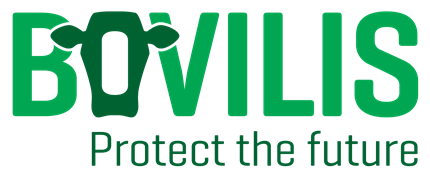Frequently Asked Questions about Bovilis Bovipast RSP
Sarah Higgins MVB MRCVS CertAVP, Ruminant & Equine Veterinary Manager, MSD Animal Health
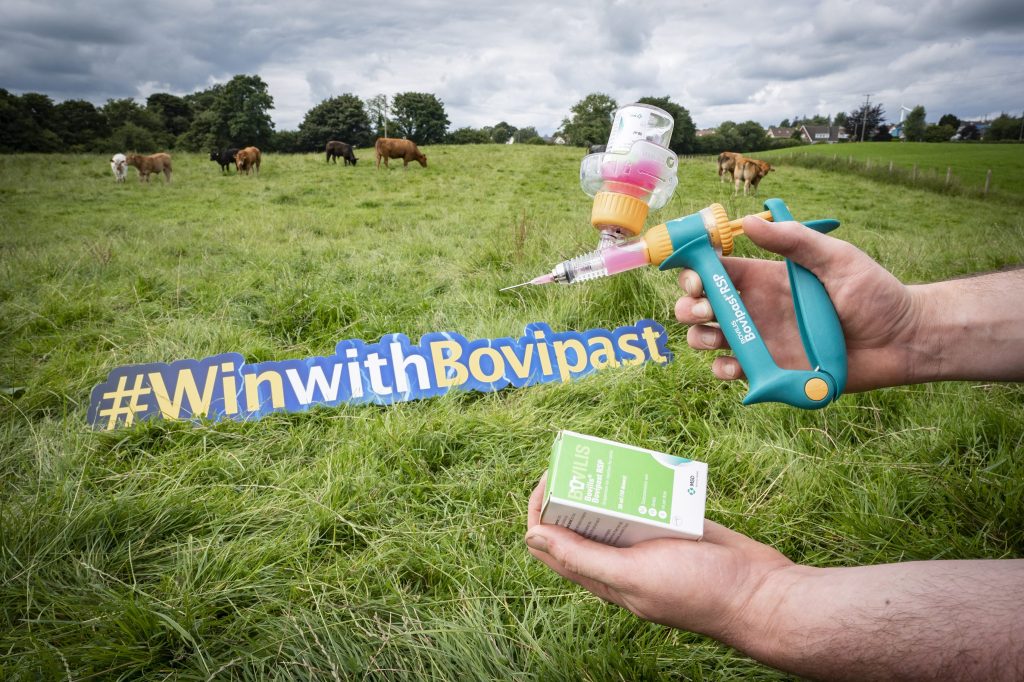
How common is respiratory disease in cattle, commonly referred to as pneumonia?
Each year in Ireland, respiratory disease is the most significant cause of deaths among calves greater than one month of age. Interactions between the animal, infectious agents (commonly referred to as bugs) and the environment can result in lesions in the lungs.
Why is it important to provide protection against respiratory disease?
There are significant economic implications associated with respiratory disease in cattle which are not only restricted to treatment costs and mortalities. The long-term impact of disease affects both dairy and beef cattle. Heifers and beef animals with a history of respiratory disease have the potential for reduced milk yield (up to 525 L) in their first lactation and reduced growth rates (up to 108 g/day) respectively.
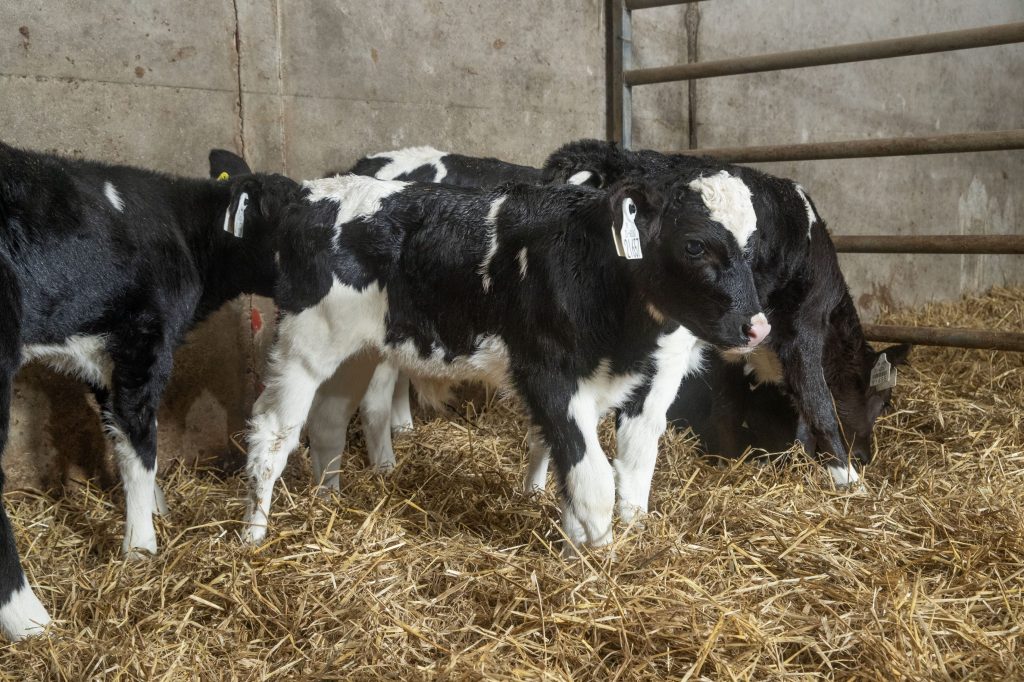
What infectious agents (bugs) does Bovilis Bovipast RSP vaccine provide protection against?
Bovilis Bovipast RSP protects against both viral and bacterial agents namely PI3, RSV and provides the broadest protection against Mannheimia haemolytica. Which is frequently the principal bacterial agent implicated in pneumonia. It is worth noting that vaccination against pneumonia is a vital control measure. However, vaccination alone is not sufficient to prevent disease but must be in conjunction with good farm management, biosecurity measures and good housing facilities.
What age animals can be vaccinated with Bovilis Bovipast RSP?
Any animal from approximately 2 weeks of age can be vaccinated with this vaccine. It is also licensed for use in pregnant and lactating cows.
What is the vaccination protocol with Bovilis Bovipast RSP?
Animals should receive two doses of 5 ml 4 weeks apart, subcutaneously (ideally in the neck). Ensure to use sterile clean needles and syringe for administration. It also vital that vaccines are stored correctly. e.g. for instance for Bovilis Bovipast RSP. It must be stored at 2 to 8 ⁰C and used within 10 hours of first opening.
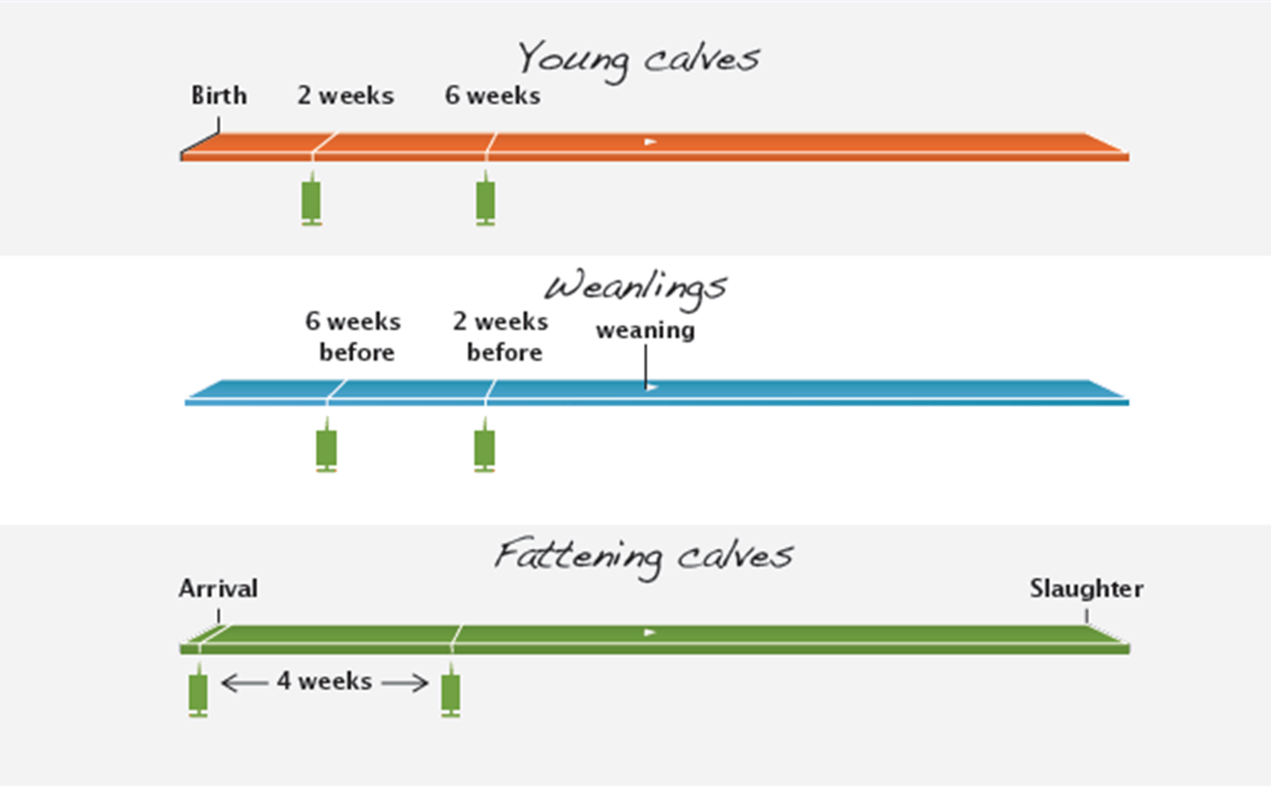
Animals received the first dose of Bovilis Bovipast RSP. How important is the second dose?
As an inactivated vaccine, it is vital to follow the recommended vaccine protocol as the second dose results in an increased antibody titre and thus improved protection. The onset of immunity is 2 weeks after the second dose.
Youngstock were administered a primary course of Bovilis Bovipast RSP. Do they require a booster?
It is recommended to administer a booster dose 2 weeks prior to a known risk period, for example, pre-housing or pre-sale.
Newborn calves were administered Bovilis INtranasal RSP Live at birth. Do they require protection with Bovilis Bovipast RSP?
Bovilis INtranasal RSP provides protection against two common viral causes of pneumonia, RSV and PI3. This intranasal vaccine provides early and fast protection with a duration of immunity of 12 weeks. When Bovilis Bovipast RSP should be administered after this vaccine will vary from farm to farm depending on many factors such as the risk profile, results of previous diagnostic tests (nasal swabs, blood testing and/or post mortem), infectious pressure and the disease status of the herd.
In the face of a pneumonia outbreak, can animals be vaccinated with Bovilis Bovipast RSP?
It is not recommended to vaccinate animals that are sick, have a heavy parasitic infestation or are in a poor general condition. Your vet is best positioned to advise you on the most appropriate products to use in the face of an outbreak.
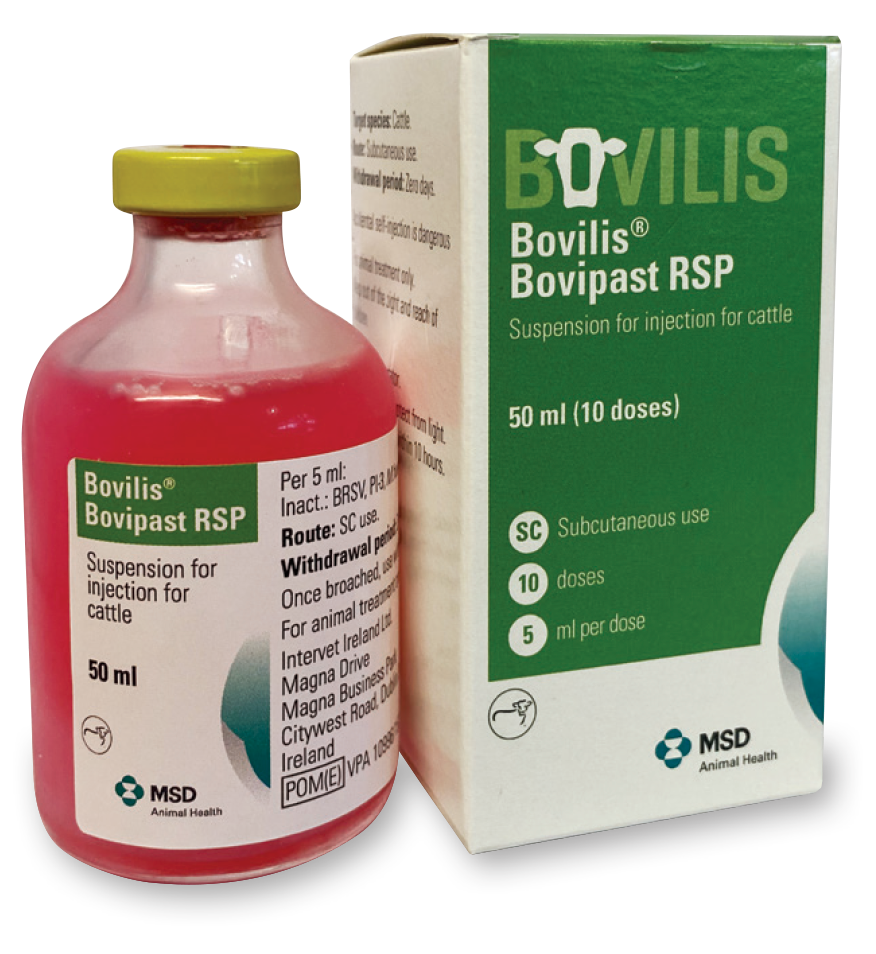
Can I administer other veterinary medicinal products on the same day as Bovilis Bovipast RSP?
Yes, it can be administered on the same day but not mixed with Bovilis IBR Marker live. However, there is no information available on the safety and efficacy of Bovilis Bovipast RSP. When used with any other veterinary medicinal product. A decision to use with another product is made on a case by case basis.
Where can you find out more information on respiratory disease and vaccination programmes?
Contact your own veterinary practitioner for further information, visit Bovilis.ie for more information.
